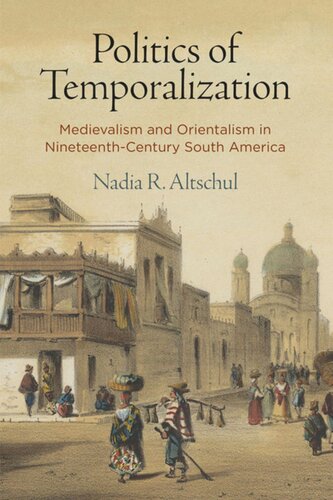

Most ebook files are in PDF format, so you can easily read them using various software such as Foxit Reader or directly on the Google Chrome browser.
Some ebook files are released by publishers in other formats such as .awz, .mobi, .epub, .fb2, etc. You may need to install specific software to read these formats on mobile/PC, such as Calibre.
Please read the tutorial at this link: https://ebookbell.com/faq
We offer FREE conversion to the popular formats you request; however, this may take some time. Therefore, right after payment, please email us, and we will try to provide the service as quickly as possible.
For some exceptional file formats or broken links (if any), please refrain from opening any disputes. Instead, email us first, and we will try to assist within a maximum of 6 hours.
EbookBell Team

0.0
0 reviewsIn Politics of Temporalization, Nadia R. Altschul examines why, by whom, and to what ends certain populations, objects, and practices in nineteenth-century Ibero-America were named as living residues of the premodern Moorish past—and argues against this colonial temporalizing of "the now" as belonging to a constructed and othered "past."
In Politics of Temporalization, Nadia R. Altschul examines why, by whom, and to what ends certain populations, objects, and practices in nineteenth-century Ibero-America were named as living residues of the premodern Moorish past—and argues against this colonial temporalizing of "the now" as belonging to a constructed and othered "past."